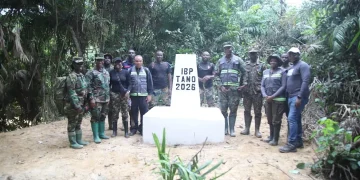Businessman and philanthropist Alhaji Seidu Agongo has called on Ghana to move beyond ceremonial mourning and create long-term support systems for the families of public servants who die in active service.
His appeal follows last Wednesday’s helicopter crash that killed two ministers – Dr Edward Omane Boamah and Dr Ibrahim Murtala Muhammed – and six others, leaving behind grieving spouses, children and dependents.
“As flags fly at half-mast and tributes pour in, a deeper question lingers: what becomes of the families, especially the children left behind when the mourning fades?” he wrote in an opinion piece titled National loss, personal pain: The families we must not forget.
The businessman, who is CEO of Zeera Group of Companies, stressed that these were “not just names on a list: They were fathers, husbands, breadwinners, and mentors,” and that condolences alone could not fill the “lifelong emotional and financial voids” left by their deaths.
Pattern of forgotten families
Agongo warned that history shows how quickly attention shifts from bereaved families once the headlines fade. He cited the case of late Deputy Finance Minister John Kumah, whose widow recently lamented: “What is painful is the disappointment, the betrayals, the rejections. People we thought would be there — the way they turned their backs on us. The lies, the deceptions.”
He also pointed to the family of former President John Evans Atta Mills and the widow of Captain Maxwell Adam Mahama, saying isolated gestures such as trust funds and state funerals often fail to address long-term needs.
Cruel reality of fair-weather support
According to Agongo, “many people who were once close to these deceased leaders… often disappear when their source of benefit is no more.” While acknowledging that Mrs Kumah said “God has been faithful” in helping her family navigate hardship, he said the problem reflects a wider societal pattern.
“When a prominent figure dies, the initial outpouring of sympathy is genuine and heartfelt,” he observed. “But as weeks turn to months and months to years, the families often find themselves struggling alone, forgotten by those who once sought favor from their departed loved ones.”
Call for sustainable structures
Agongo is urging government, civil society, the private sector and individuals to commit to “sustainable support mechanisms that extend far beyond the mourning period.”
His proposals include: Scholarships and educational trusts for children of the deceased; Skills training and business support for surviving spouses; Counseling and mental health services for grieving families; and Pension schemes and insurance policies for long-term financial security.
He welcomed government’s provision of psychological support for those affected by the helicopter tragedy but stressed the need for a “comprehensive national framework” to protect families of all public servants who die in service.
A moral obligation
“The test of our humanity is not in how we treat people when we need them, but how we care for their families when they can no longer benefit us,” he said. “Let us not allow these families to join the ranks of the forgotten.”
Agongo concluded that serving the families of the deceased is “not charity – it is our moral obligation and the true measure of our collective character as a nation.”
Source: www.KumasiMail.Com/ Joseph Ziem

































































